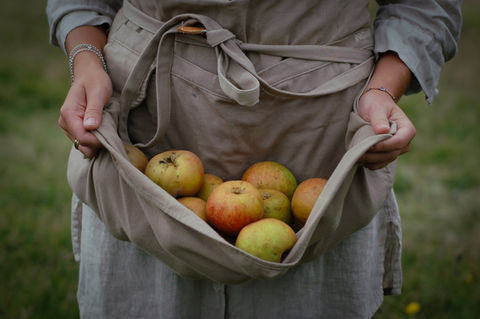8 Easy Toxic-Free Kitchen Swaps for a Healthier, Greener Home
- Cameron Rosenthal
- Jan 29, 2025
- 3 min read
Updated: Mar 22, 2025

Want to create a healthier, toxin-free kitchen and live more sustainably?
🌱 Ready to swap out harmful products for eco-friendly, natural alternatives? You’re in the right place! In this post, I’m sharing the best toxic-free kitchen swaps that will help you reduce waste, embrace a greener lifestyle, and create a healthier home—without the overwhelm. Let’s dive in and start making simple, sustainable changes for a cleaner, eco-friendly kitchen! 🌍
Your kitchen is the heart of your home, but did you know it's also a hotspot for hidden toxins? From plastic food containers leaching chemicals to conventional dish soaps packed with synthetic fragrances and harsh detergents, many everyday kitchen products contain ingredients that can impact your health and the environment.
The good news? Small, intentional swaps can drastically reduce your exposure to harmful chemicals and make your home more eco-friendly. Whether you're just starting your toxin-free journey or looking to level up your sustainable kitchen, these simple changes will help you create a cleaner, greener space in 2025.
🌿 Grab your Sustainability Checklist & Monthly Habit Tracker Bundle here and start your eco-friendly journey today! 🌍
🔗Related Posts You Might Love
8 Simple and Impactful Toxic Free Kitchen Swaps
Upgrade Your Dish Detergent
Most conventional dish soaps contain phosphates, artificial fragrances, and sulfates, which can leave behind residue on your dishes and pollute waterways. Switching to a biodegradable, plant-based dish detergent is a small but powerful way to reduce your exposure to toxins.
Better Alternatives:
Ditch Plastic Cookware & Utensils
Plastic utensils and cookware can leach harmful chemicals like BPA and phthalates, especially when exposed to heat. Swapping them for stainless steel, bamboo, or silicone alternatives will keep your kitchen safer and more sustainable.
Better Alternatives:
Ditch Nonstick Pans
Nonstick cookware is often coated with PFAS (aka "forever chemicals"), which can release toxic fumes when heated. Instead, invest in cast iron, stainless steel, or ceramic cookware for a healthier kitchen.
Better Alternatives:
Swap Aluminum Foil for Sustainable Options
Aluminum foil can leach into food, especially when used with acidic ingredients like tomatoes or citrus. Opt for reusable and compostable alternatives to reduce waste and avoid exposure.
Better Alternatives:
Invest in Glass or Stainless Steel Storage Containers
Plastic food storage containers can release microplastics and hormone-disrupting chemicals into your food, especially when heated. Glass and stainless steel are safer, more durable, and better for long-term food storage.
Better Alternatives:
Go for Natural Sponges and Cleaning Tools
Did you know that synthetic sponges are made from petroleum-based materials and can harbor bacteria? Choose natural sponges, compostable dish brushes, or washable cloths instead.
Better Alternatives:
Filter Your Water
If you’re still using bottled water or relying on tap water without filtration, it’s time to make the switch. Install a water filter to remove impurities like chlorine, lead, and other contaminants.
Better Alternatives:
Choose Natural Cleaning Products
Many kitchen cleaning sprays contain toxic chemicals that can linger on surfaces and release harmful fumes. Instead, opt for non-toxic, eco-friendly options or make your own all-purpose cleaner using ingredients like white vinegar, baking soda, and essential oils.
Better Alternatives:
The Bottom Line: Small Swaps = Big Impact
A toxin-free kitchen isn’t just about health—it’s about creating a home that supports sustainability, well-being, and eco-conscious living. By making these simple swaps, you’ll reduce your exposure to harmful chemicals, cut down on waste, and create a safer space for you and your family.
What are your favorite non-toxic kitchen swaps? Share your tips in the comments below!
📌 Save this post for later & follow for more toxin-free living tips!































































